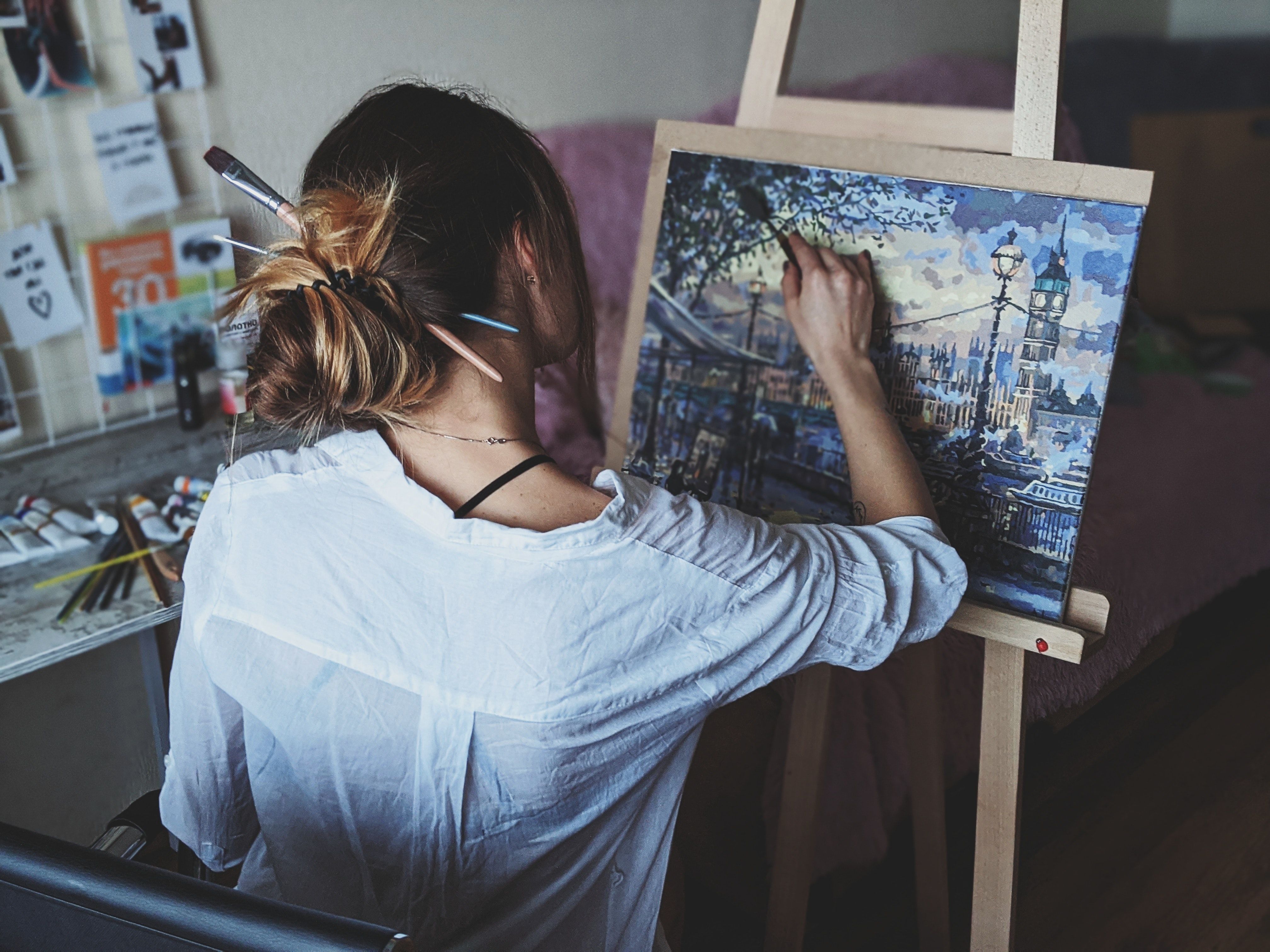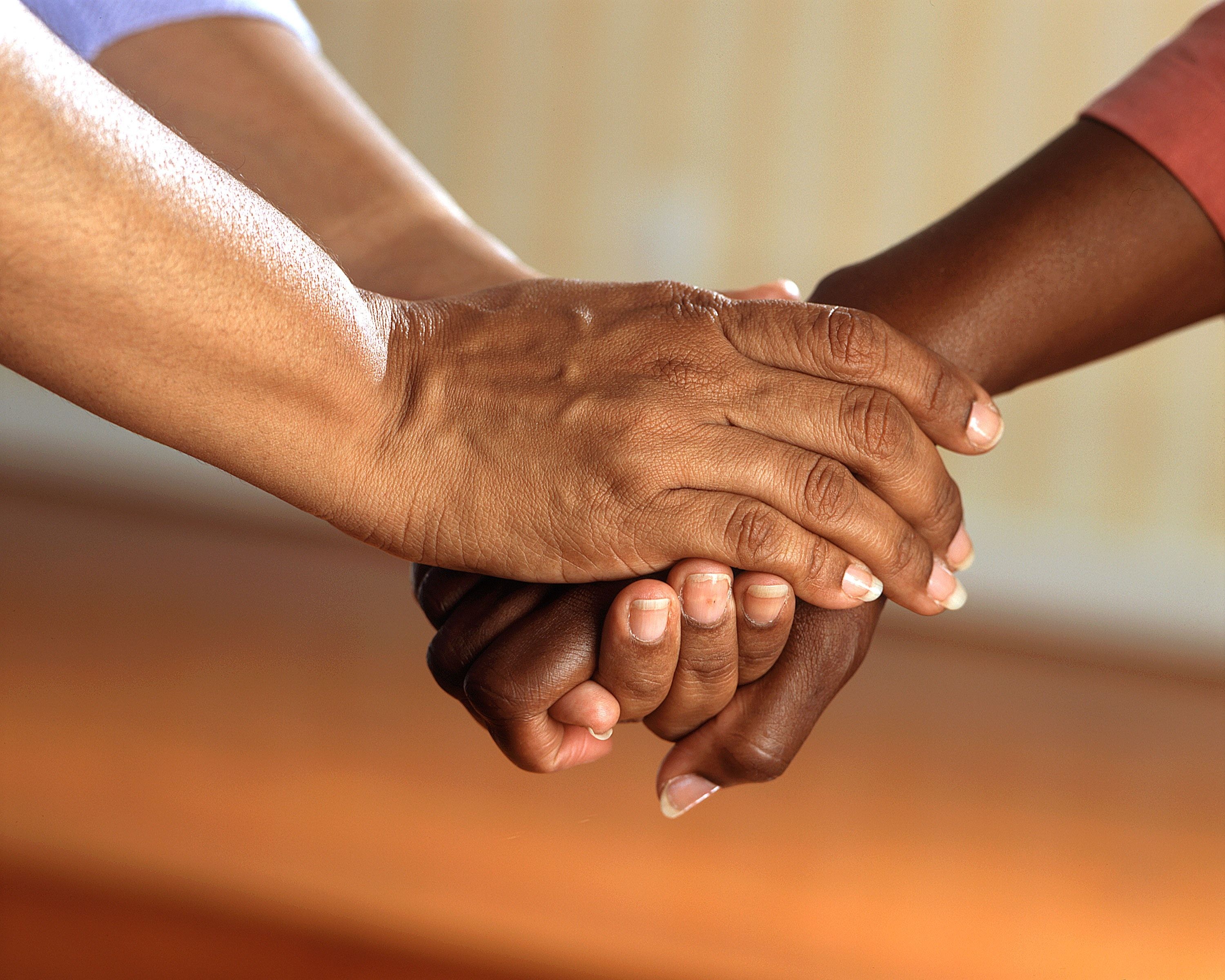8 Research-Backed Antidotes to Coronavirus “Dis-Ease”
Try this: Name five things in your space right now. Breathe mindfully three times. Feel your feet. Doing better?
While we may be following all the rules to prevent catching or spreading the coronavirus, we may not know similar rules for slowing the spread of the far more contagious “dis-ease” of the constant anxiety and emotional discomfort the pandemic may be triggering. This dis-ease can seem to spring from every headline, every surface, and every innocent touch of your face; however, there is one place it cannot dwell, a place we should be touching liberally and spreading to everyone: the here-and-now. There is no fear in the present moment, only safety and peace (among other good things).
Here are 8 research-backed ways both students and parents can shelter-in-the-here-and-now – the safest space in the world – and get through the pandemic with a resiliency of steel and a heart of peace.
1. Give yourself and everyone on earth the space to have a “bad attitude” for the next three months.
In the blink of an eye, we have shifted to a wartime lifestyle – both in and out of the house. Our relationships are now ruled by an ever-increasing distance: between ourselves and our loved ones, between present circumstances and future plans, between our hands and our face. All our usual supports and comforts are on hold or on a screen – friends, sports practice, clubs, favorite restaurants, family visits, theater, movies, concerts, vacations. Unbelievable to fathom, some of us reading these words may even be dealing with the unexpected death of someone we know. We humans are highly adaptable, but even the most rugged cannot weather this much loss without turning pissy or numb or depressed or panicked at times.
The collective name for these reactions is grief, which healer Elizabeth Kubler-Ross broke down into “The 5 Stages of Grieving” (denial, bargaining, anger, depression, and acceptance) with a sixth stage (meaning) added by David Kessler. (Kessler’s website grief.com is an extraordinary resource for working with grief). We are entering a planet-wide process of grieving. Just like washing our hands or wearing a mask to slow the pandemic, we should routinely remind ourselves that we are all going through a mammoth, mysterious, fluid grief. When we can name it, we can work with it.
Try this: every morning, when you first wake up (or whenever you wash your hands), vow to give yourself and everyone you encounter full permission to feel and behave in whatever way is needed. Do you or someone you know need to stress-nap three times today? Great. Or need to shut the door and the phone for a week and stare at trees out the window? Awesome. Feeling okay and want to move on to more active things? Super. Keep reading.

2. Indulge in a creative practice.
Now is the perfect time to nourish your soul through creative arts. Human beings are not “head taxis” meant to jump from a game app to a Zoom room to a news site and back all day. We are built to experience and express life. The brain loves it: creating art relieves stress, encourages creative thinking, increases brain plasticity, and imparts other mental health benefits. And anyone can do art.
Try this: Every day, put time aside to get creative simply for your own pleasure. Memorize a poem or song you like. Dust off that instrument in the closet and play a tune. Experiment in the kitchen with new recipes. Learn to knit or crochet. Take a quarantine interior redecorating challenge. Write short stories or plays. Paint, draw, sculpt, dance. Especially dance. (Pour that grief into it – stage six – giving the grief meaning.) Remember, this creative practice is for nobody else but YOU. It’s about connecting with the present, with flow and joy, not making a product.
Want support? Ivy Tutors Network has several online creative arts classes like playwriting (which I will be teaching) and poetry reading that can give you a structured way to have fun, fight cabin fever and get your creative side flowing.
3. Stop and just be.
Our minds are expert at finding a good reason to avoid the now, but – with so many distractions taken away – many of us are facing the Great Dis-Ease underneath our usual escapes, what Buddhists call “dukkha,” a collective dissatisfaction that we inherited from before the coronavirus ever came along (but which it triggers). Have you caught yourself compulsively checking email, Netflix, the fridge, the news, Facebook, Insta, and the like more than ever? I have. That is “dukkha,” our friend Dis-Ease, poking at us.
Now is a ripe time to sit compassionately with this dissatisfaction. Bring it close. Embrace it until there is no resistance to this feeling of dis-ease, which is simply the result of habitually looking for peace and safety in the wrong place. Like we tasted at the top of this article, meditation is the practice of looking in the right place, the here-and-now, and sheltering there. As a meditation teacher myself, I can attest that the scientific evidence of the benefits of meditation are legion.
Try this:
- sit in a favorite chair away from distractions (preferably behind a closed door)
- take three big breaths
- on the third breath, close your eyes, relax and let the body settle into stillness
- let your breathing find its own rhythm and feel your body breathe. Appreciate that your body does this for you all on its own!
- if dis-ease arises, notice it and gently breathe into the dis-ease. Drop all stories about it. Simply feel it in the light of your attention.
- continue for the duration of the session
Start with 5-minute sits a couple times a day and extend their length the more you practice. In the course of your day, when the impulse to escape dis-ease comes up (the fridge, the phone), stop and take a few minutes to simply be with the feeling. In time, the feeling will change.
Want support? I am teaching a weekly online meditation class to help you launch your own meditation practice at home and receive regular support through the pandemic. Join us!

4. Make a routine.
Even when life is more stable, humans don’t do so well with days and days of unstructured time. We need routines to stick to good habits and grow resilience. If you are going to make any headway with this list, for example, you need to put its actions into a regular, doable schedule. This need is especially true if you are not used to spending most of your day at home, in charge of your own time. What’s more, routines help with many basic things like better sleep, health and stress levels.
Try this:
Every Sunday, open your calendar and map out your activities for the week, even if they are mostly in the same room. I recommend scheduling with the following order of importance in mind:
1) self-care (including rest and exercise)
2) school/homework/job
3) social time
4) personal admin/organization (like calendaring and emails)
5) casual pleasures like TV/internet.
Notice the number one priority – more than school and work – is self-care. Nothing goes well if you are not well. Schedule your self-care first – be it creative practices or workouts or meditation or walks or anything else in this article – then, schedule the other items. Notice I also include casual pleasures, things you wouldn’t normally plan like watching TV or Facebook. This will help you contain compulsive stress-fillers that can eclipse the critical self-care activities that make happiness thrive. Lastly, put this calendar on physical paper in a place you will see it every day. You need to look at it to remind yourself of your priorities.
Want support? Ivy has several tutors who coach executive functioning skills needed for a happy life in quarantine. We even have a class on achieving long term goals during the shutdown.
5. Connect to your tribe.
Every year, an international group of social scientists releases a study called the World Happiness Report. In it, they use six criteria to score and rank countries on the happiness of their citizens. What is the #1 reason people say they are happy? Regular access to their loved ones. Thanks to the internet and the quarantine, we can, ironically, increase that access.
Try this: Make a list of people who are important to you, near and far, but to whom you haven’t talked in a while: old friends, relatives, summer camp counselors, etc.. Pick one person a day and reach out. You might feel awkward to break the silence, but, remember, the entire human race is in the coronavirus boat now and you may be surprised just how much your outreach may help someone. In my experience, re-initiating contact is life-giving and meaningful. Take it further and invite your friend to a quarantine challenge! Start a creative or self-care practice together and check in once a week over video chat. You could even take one of our classestogether.
6. Help others and be generous.
This crisis implicates everyone on earth. Now is not a time to sit on the sidelines. It is a time to step (when we are ready and able). Moreover, the positive of effects of helping others is widely documented: feel-good chemicals like endorphins, dopamine, and oxytocin and prolonged life expectancy. When we take our anxiety and put it into concrete action, we regain a sense of agency and well-being.
Try this: Pick one area of the pandemic relief effort - making masks, shopping for the elderly, feeding first-responders – and donate some money and time to it. Notice, how does it feel to pitch in?

7. Laugh.
Joy is the greatest resistance to this pandemic. I probably don’t need to link to a study to tell you humor is especially effective at pivoting the stress response into presence. Subjugated people across history (Africans, Native Americans, Jews, LGBTQ people, among others) have faced threats to their existence time and again and learned that – to survive – they must dance and laugh and sing. Look to their histories for inspiration.
Try this: Once a day, take a laughter break. Youtube comics in quarantine like Chris Mann are money in the happiness bank. Go further and make a funny corona video or meme yourself. Ignore any guilt that you are happy. Your survival depends on it.
8. Go outside everyday.
Whether you are near nature or quiet streets, whether you walk, run, work out, cycle or sit on a bench, whether the weather is great or not, reconnecting with the elements has enormous benefits to our well-being.
Try this: Going out at any time of day will benefit you, but the sunset (or the sunrise for those early risers) has an especially positive impact. Seeing and feeling the changing light regulates our inner cycles, forces us to put down our phones and drink in beauty, and reminds us the world, viruses and all, is a living wonder.
Final thoughts.
We can see this moment as a doorway to growth or an abyss to despair. We can use it to realize the resilience and joy needed to pull through, or fall into pessimism. In certain native and tribal cultures, people intentionally give up food, shelter and community for a stretch and go on a journey in the wilderness to face their fears, learn more about what truly matters to them and how to live. COVID-19 has given the entire human race such an invitation. We can help you take it.